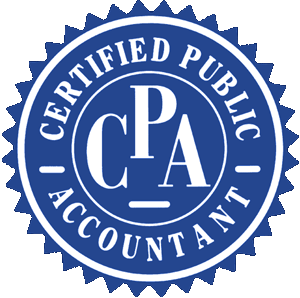The Certified Public Accountant (CPA) Exam is a critical milestone for accounting professionals seeking to validate their expertise and advance their careers. This comprehensive examination assesses a candidate’s knowledge and skills in various areas of accounting and ensures they meet the high standards required of CPAs. In this article, we will delve into everything you need to know about the CPA Exam, from its structure and format to the eligibility criteria, key subjects, and effective study strategies.
Understanding the CPA Exam Structure and Format
The CPA Exam is divided into four sections, each focusing on different aspects of accounting and related fields. These sections are Auditing and Attestation (AUD), Business Environment and Concepts (BEC), Financial Accounting and Reporting (FAR), and Regulation (REG). Each section is designed to test specific knowledge areas and skills essential for a CPA.
Each section of the CPA Exam is four hours long, making the total exam duration 16 hours. The exam is administered in a computer-based format, allowing candidates to take the test at various Prometric testing centers throughout the year. The sections can be taken in any order, but all four must be completed within an 18-month rolling window to pass the exam.
The exam format includes multiple-choice questions (MCQs), task-based simulations (TBSs), and written communication tasks (WCTs). MCQs are objective questions with four possible answers, while TBSs are practical scenarios that require candidates to apply their knowledge to real-world situations. The WCTs, found only in the BEC section, assess a candidate’s ability to communicate effectively in writing.
Each section is scored on a scale of 0 to 99, with a passing score of 75. The scoring process is complex and involves multiple steps to ensure fairness and accuracy. It is important to note that the CPA Exam is not graded on a curve; candidates are assessed based on their performance against predetermined standards.
Understanding the structure and format of the CPA Exam is crucial for effective preparation. Familiarizing yourself with the types of questions and the overall layout can help reduce anxiety and improve performance on exam day. For more details on the exam structure, visit CPA Test Bank.
Eligibility Criteria and Application Process
To sit for the CPA Exam, candidates must meet specific eligibility criteria, which vary by state. Generally, candidates need a bachelor’s degree with a certain number of credit hours in accounting and business-related courses. Some states also require candidates to have completed 150 semester hours of education, which typically equates to a master’s degree or additional coursework beyond a bachelor’s degree.
Prospective candidates should check the specific requirements of the state in which they plan to become licensed. Each state’s Board of Accountancy provides detailed information on the educational prerequisites, residency requirements, and any additional criteria that must be met. Meeting these requirements is a crucial first step in the application process.
The application process for the CPA Exam involves several steps. First, candidates must submit an application to the Board of Accountancy in their chosen state. This application typically includes proof of education, such as transcripts, and any required fees. Once the application is approved, candidates receive a Notice to Schedule (NTS), which allows them to schedule their exam sections.
Candidates can then register for the exam sections through the National Association of State Boards of Accountancy (NASBA) website. Scheduling can be done at any Prometric testing center, and it is advisable to book early to secure preferred dates and locations. It is also important to be aware of any application deadlines and testing windows, as missing these can delay the process.
After scheduling the exam, candidates should prepare thoroughly for each section. Utilizing resources such as review courses, study guides, and practice exams can significantly increase the chances of passing. For comprehensive study materials and practice questions, visit CPA Test Bank.
Understanding the eligibility criteria and application process is essential for a smooth journey to becoming a CPA. Proper planning and adherence to the requirements can help avoid unnecessary delays and ensure candidates are well-prepared for the exam.
Key Subjects and Topics Covered in the CPA Exam
The CPA Exam covers a wide range of subjects and topics, reflecting the diverse knowledge and skills required of a CPA. Each of the four sections of the exam focuses on different areas of accounting and related disciplines.
The Auditing and Attestation (AUD) section tests candidates’ knowledge of auditing procedures, standards, and ethics. Key topics include audit planning, internal controls, evidence collection, and the preparation of audit reports. This section also covers attestation engagements and professional responsibilities.
The Business Environment and Concepts (BEC) section assesses candidates’ understanding of the business environment and its impact on an organization’s operations. Topics include corporate governance, economic concepts, financial management, information technology, and business strategy. The BEC section also includes written communication tasks that evaluate candidates’ ability to articulate their thoughts clearly and effectively.
The Financial Accounting and Reporting (FAR) section is one of the most comprehensive parts of the CPA Exam. It covers financial accounting concepts, standards, and reporting requirements for various entities, including businesses, not-for-profit organizations, and government entities. Key topics include financial statements, revenue recognition, pensions, leases, and consolidations.
The Regulation (REG) section tests candidates’ knowledge of federal taxation, business law, and ethics. This section covers individual and corporate taxation, tax procedures, and professional and legal responsibilities. Understanding the legal and regulatory environment is crucial for CPAs, as they must navigate complex tax laws and ethical considerations in their practice.
Each section of the CPA Exam requires a deep understanding of the relevant subjects and the ability to apply this knowledge to practical scenarios. Comprehensive study materials and practice questions, such as those available at CPA Test Bank, can help candidates master these topics and succeed on the exam.
Effective Study Strategies and Resources for Success
Preparing for the CPA Exam requires a strategic approach and access to high-quality study resources. Developing an effective study plan is crucial for managing the extensive content covered in each section of the exam.
One of the first steps in effective preparation is to create a study schedule that allocates sufficient time for each section. Breaking down the content into manageable chunks and setting specific goals for each study session can help maintain focus and ensure comprehensive coverage of all topics. It is also important to allow time for review and practice exams.
Utilizing a variety of study resources can enhance understanding and retention of the material. Review courses, textbooks, and online resources offer different perspectives and explanations that can aid in grasping complex concepts. Practice questions and simulations, such as those provided by CPA Test Bank, are particularly valuable for familiarizing candidates with the exam format and testing their knowledge.
Joining study groups or finding a study partner can also be beneficial. Collaborative learning allows candidates to discuss challenging topics, share insights, and provide mutual support. It can also help keep motivation levels high and make the study process more engaging.
Regularly taking practice exams is essential for assessing progress and identifying areas that need improvement. Simulated exams provide a realistic experience of the test environment and help build confidence. Analyzing performance on practice exams can highlight weak areas and guide further study efforts.
Finally, maintaining a healthy balance between study and personal life is important. Adequate rest, exercise, and relaxation can improve focus and productivity. Avoiding burnout is crucial for sustaining long-term study efforts and performing well on exam day.
By implementing these effective study strategies and utilizing comprehensive resources, candidates can enhance their preparation and increase their chances of passing the CPA Exam. For a wide range of study materials and practice questions, visit CPA Test Bank.
The CPA Exam is a rigorous and demanding test that requires thorough preparation and a deep understanding of various accounting and business concepts. By understanding the exam structure, meeting the eligibility criteria, mastering the key subjects, and employing effective study strategies, candidates can successfully navigate the path to becoming a Certified Public Accountant. Utilizing resources such as CPA Test Bank can provide valuable support and enhance the likelihood of success. With dedication and the right approach, aspiring CPAs can achieve their professional goals and advance their careers in the field of accounting.

